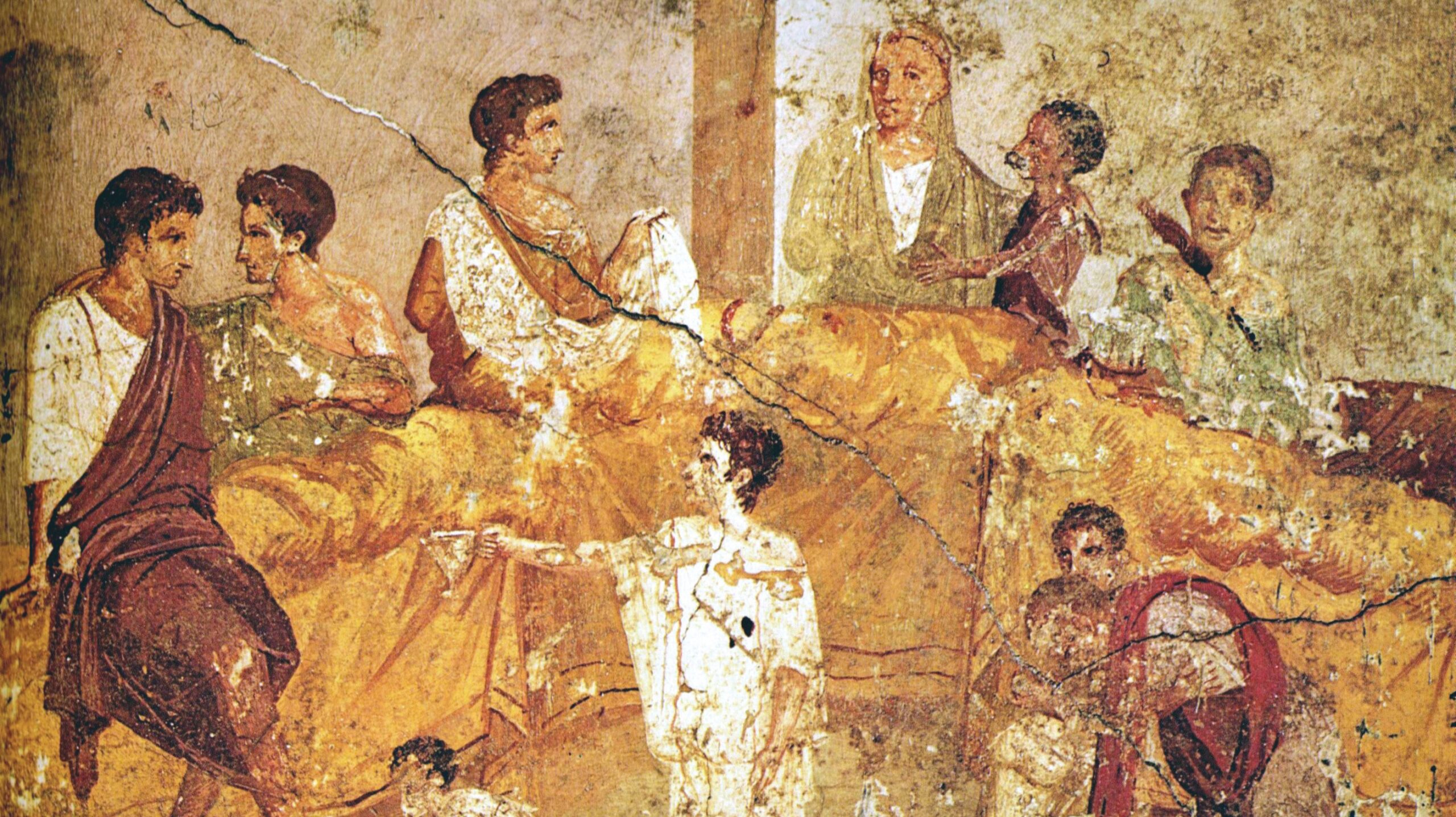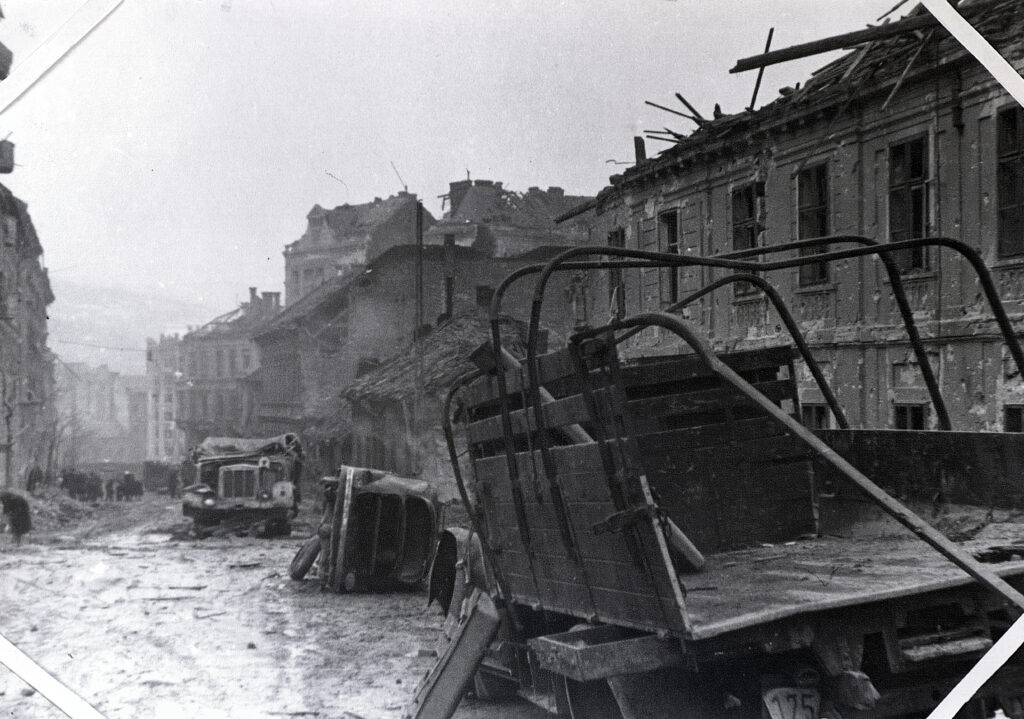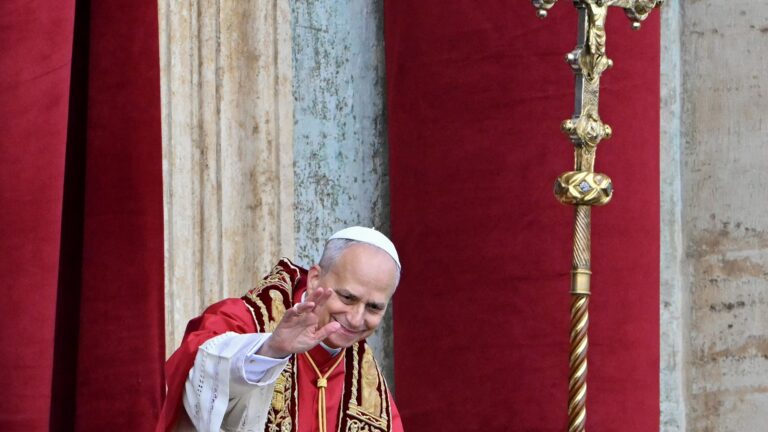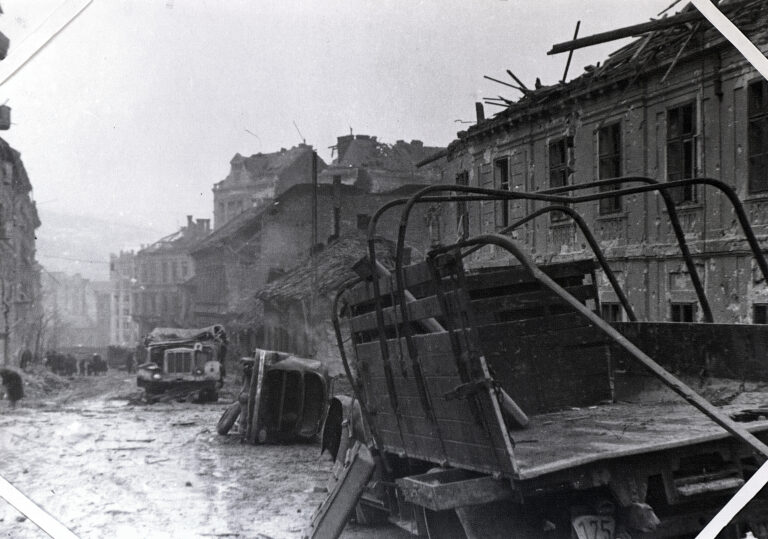This article was published in Vol. 4 No. 2 of our print edition.
Families are important. People of all political persuasions recognize this. From Joe Biden’s 2021 policy set-piece, the ‘American Families Plan’, to Giorgia Meloni’s successful campaign slogan in the Italian elections of 2022, ‘God, homeland, family’, politicians all over the Western world rely on the idea of the family to appeal to their electorates.
In Hungary, a country famous for its pro-family outlook, the Fundamental Law (2012) states that: ‘We hold that the family and the nation constitute the principal framework of our co-existence.’ The Fundamental Law also states (in section (L)) that: ‘Hungary shall protect […] the family as the basis of the survival of the nation.’ Linking to this constitutional provision is Act CCXI of 2011 on ‘The Protection of Families’. The Act states:
‘The family is an autonomous community established in human history before the emergence of law and the State, and rests on moral grounds. The family is Hungary’s most important natural resource. As the basic unit of society, the family is the guarantee of the nation’s survival…Growing up in a family is safer than any other possibility.’1
The family is acknowledged as vital even in international law. Article 23 of the International Covenant on Civil and Political Rights (ICCPR) states the following: ‘The family is the natural and fundamental group unit of society and is entitled to protection by society and the State.’2 The European Social Charter of 1961 expresses a similar sentiment: ‘The family as a fundamental unit of society has the right to appropriate social, legal, and economic protection to ensure its full development.’3
However, despite bipartisan, supranational support for the importance of the family, some portray it as a dangerous, regressive institution. Karl Marx and Friedrich Engels are the most infamous for arguing for the abolition of the family. They claimed that the bourgeois family was a tool of capitalist oppression. However, radical socialists are not the only propagators of this line of thinking. The feminist argument against the family was recently revived by Kathi Weeks of Duke University, who argued that societies that maintain traditional and natural family units need to work towards a ‘radical structural transformation’, with a key part of this being made possible by the transformation of society to make families less necessary. She suggests activists work towards a ‘lessening [of] the coercive forces that drive people into families and block their exits’.4
Challenges to the family come from beyond the ivory tower, too. Courts and jurists are reframing the family as a legal entity, a change reflective of shifting conventions around how we think about the family in the West. The ‘natural family’ is no longer assumed―rather, it is the modern conventional family that is the norm. Grégor Puppinck puts it as follows:
‘The European Court of Human Rights has progressively removed its objective consistency and now recognises the family where there exist “close personal links” or “genuine personal ties” between adults and children in absence of biological or juridical links, or between two adults whatever their sex, in the absence of marriage.’5
In sum, the family is simultaneously considered important by people of all political alignments, yet there has been a significant change in the way we think of the family.
If the family is pivotal for society, and indeed is the basic unit of society, as the ICCPR states, it may be worth some deep philosophical reflection on why that is the case. What is the meaning and importance of the family in politics? How have political thinkers framed the role of the family in political life? And what are the implications of this line of political thought for our own understanding of the family and politics today?
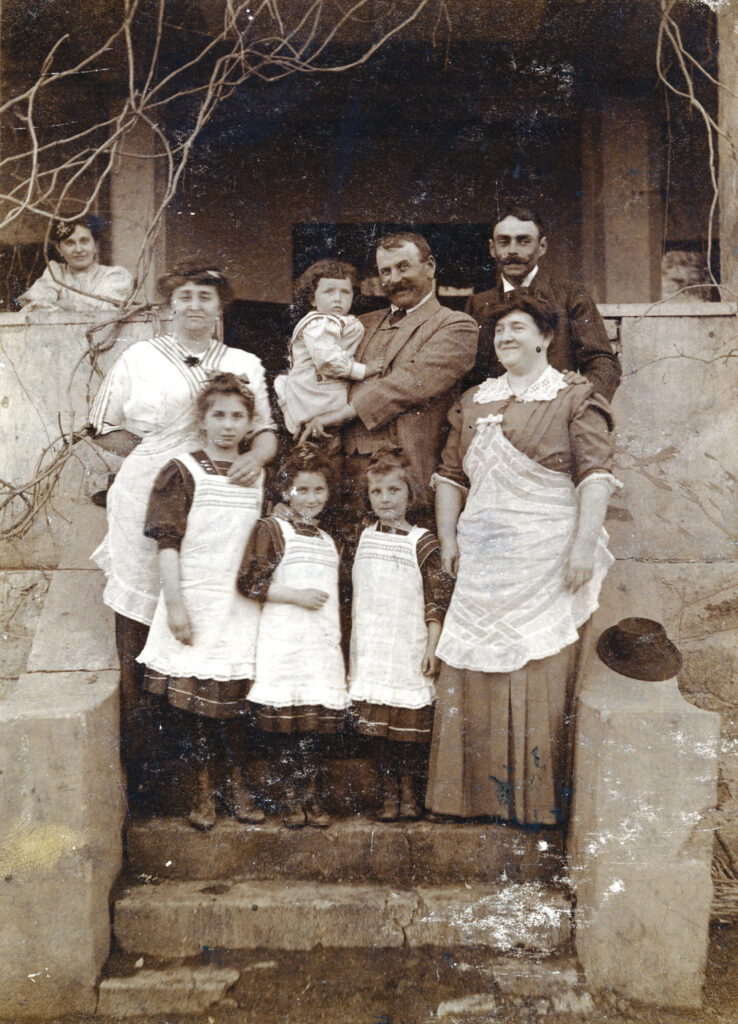
The Family in Political Thinking
Aristotle uttered the following paradigmatic words in a lecture sometime in the fourth century BC: ‘Man is a political animal.’ Why does he need the family in his political theory? For Aristotle, the family is the oikos, the ‘household’. The oikos contains more than a mother, father, and children. It also includes grandparents and other extended family, household workers, slaves, and even animals. These households form villages and then cities, in order to reach a state of what he calls ‘self-sufficiency’. In this sense, the polis, or the city, needs the oikos to coalesce into the ‘highest community’. But the family, or household, also exists to form citizens, people who display civic virtue.
These citizens are prepared for a life of public service in the oikos. So, while the household ‘exists to serve everyday needs’, it also exists to serve the polis.6 Aristotle argues that it makes a difference that a city’s ‘children be excellent, and its women too…for the women are half of the free population, and from children come those who share in the constitution’.7 The household is, according to Aristotle, a part of the polis and looks to the good of the whole, which is the city. Therefore, the household is the training ground for polis life, for the political community. Aristotle says that the excellence of the political community depends upon the excellence, or virtue, of those who emerge from their families and participate in political life.
The writings of Augustine of Hippo, the fourth-century Catholic bishop, show this Aristotelian line of thinking about the family making its way into the Christian world. For Augustine, politics exists for the sake of order and peace. Just as peace between ‘mortal man and his Maker consists in ordered obedience’, so peace in social life ‘consists in regulated fellowship’.8 This expresses itself in the family ‘in the ordered harmony of authority and obedience between the members of a family living together’, and in the political community as ‘an ordered harmony of authority and obedience between citizens’.9
While the aim of the earthly citizen is the peace of the City of God, the ‘regulated fellowship’ of social life is an important part of Christian life. After all, one of the great commandments is to ‘love your neighbour as yourself’, and Augustine observes that the primary place in which people are called upon to do this is in the family. The head of the family ‘must help his wife, children, servants, and all others whom he can influence’, and in showing this care ‘he will arrive at peace, as much as in him lies, with every man’.10 Like Aristotle, Augustine sees a direct connection between peace in the family and peace in the polis. ‘Every home’, he argues, ‘should be a beginning or fragmentary constituent of a civil community, and every beginning related to some specific end, and every part to the whole of which it is a part, it ought to follow that domestic peace has a relation to political peace’.11 The civic realm is impacted by the formation of, and lives of, those who dwell in families together.
It is this filial piety, this obligation towards those authorities which you have not chosen, that is the focus of medieval and early modern thinkers. Starting in the latter part of the Middle Ages, Christian theologians began to interpret the biblical commandment to ‘Honour your father and mother’ as not just applying to domestic relations, but also to civic relations. Thomas Aquinas is exemplary of this approach, stating in his commentary on the fourth commandment that the word ‘father’ refers as much to ‘rulers and kings’ as to domestic authorities, because ‘their whole care is the good of their people’.12 Bonaventure is of a similar mind, saying that ‘anyone who presides over public affairs, such as a prince, a baron, a count, etc., is called a father’.13 The Protestant reformers, including Martin Luther, would argue along similar lines.14
It was the most famous opponent of the French Revolution, Edmund Burke, who expanded the importance of the family for political thinking beyond obligation and filial piety. Burke, in his Reflections on the Revolution in France, links the family with national and civic identity, setting in train a tradition of thinking about families and politics that stretches through the Conservative tradition. First, Burke discusses the political traditions and rights of Britain as a kind of family inheritance. He argues that the rights and privileges of the British people, which he folds under the unwritten British Constitution, are ‘an entailed inheritance derived from our forefathers’.15 But the analogy between the transmission of family inheritance and that of political and constitutional norms is not the limit of Burke’s deployment of the family. The British have, in Burke’s view, ‘given to our frame of polity the image of a relation in blood, binding up the constitution of our country with our dearest domestic ties’.16 The nation is not like a family, it is a family. Burke says that ‘[we have adopted] our fundamental laws into the bosom of our family affections’.17 Love of nation, of our fellows, is not only similar in kind, but these familial affections are, in fact, the same.
‘The family is crucial for politics because it is the ground on which citizens are formed’
Burke does not conflate the affection of national fellowship with familial fellowship in a way that squashes the many differences between them. But he does suggest that the warmth one feels about one’s country is founded upon the ‘bosom of our family affections’. Where can this affection be cultivated? Burke’s answer to this question is one of his most famous utterances: ‘To be attached to the subdivision, to love the little platoon we belong to in society, is the first principle (the germ as it were) of public affections.’18 The little platoon is the family, which Burke goes on to describe as ‘the first link in a series by which we proceed toward a love to our country and to mankind’.19 And the family is the location of real rights, for Burke, as opposed to the abstract, metaphysical conceptions of rights that the Revolutionaries argued for: ‘Men…have a right to the acquisitions of their parents, to the nourishment and improvement of their offspring, to instruction in life, and to consolation in death.’20 Burke shows that the family constitutes a place of growth, vitality, and consolation. It is a ground for the growth of civic virtues and affections. The family is where people can attain their true natural rights, as opposed to the abstract, metaphysical rights that Burke’s opponents argued for.
On the question of metaphysical abstractions, there could barely be a greater distance than that between Burke and the German idealist philosophy of Hegel. And yet in Hegel, we find a fascinating articulation of the importance of the family, and one not at odds with Burke’s. The family is, for Hegel, the natural ethical community, the initial place where the person who is reaching for the absolute ideal of freedom steps into the world. This ethical life, for Hegel, is one where abstract rights and duties become concrete, and the family is the first site of these being made actual.
The family has the individual as its end. But the state, which is reason personified, is the highest end of the individual. In this sense, I believe in a very dangerous sense, the family and the individual are pointed toward the state and, according to Hegel, find their fulfilment in the state. Individuals are, for Hegel, only ‘actual and substantial’ when they become ‘citizens’ of the state. If individuals’ conscious identity ceases with the family, Hegel suggests they are ‘only an impotent unreal shadow’.21 However, setting this objection to Hegel’s framework aside, we can see that he argues along similar lines to Aristotle. The family is the foundation of ethical life, and therefore of civic life.
For Hegel, the dissolution of the family through the cleaving of children to new families or starting their own families feeds into the life of the political community. ‘The family’, asserts Hegel, ‘disintegrates’ and becomes ‘a plurality of families’ when people are ‘released’ to transform the original family into new families. Furthermore, it is at this point that families join with other families to form ‘civil society’.22 Civil society is, in Hegel’s words, a ‘universal family’, where individuals, who are or were members of families, come together to meet one another’s needs for subsistence, protection, and justice.23 But even civil society is subordinated to a higher form of the idea―the state. The family is, therefore, subordinated to this end; it exists to begin the individual’s journey to the highest end, which is the subsuming of one’s self into the ethical life of the state.24
Hegel’s philosophy of the family is paradoxical. He offers a profound and powerful philosophical account of the family and at the same time grinds the family into seeming insignificance in his broader account of politics. The English philosopher Roger Scruton retains aspects of Hegel’s account of the family, but moderates him in important ways. In the first place, Scruton insists that the family is autonomous; it ‘has no other aim besides itself’.25 The family exists because of nature, and it provides its participants with ‘an unending source of rational objectives’, objectives directed towards the love and care of those you are joined with.26 Scruton argues that the family aims beyond the immediate good of its members and towards a continuation of the family into the future, a future out of sight of those alive. In this way, it is quite different from the institutions of civil society. The family constitutes a transcendent bond, a unity that extends beyond the immediate commercial exchanges and communication of goods in the daily life of the home and civil community. For Scruton, the family is sacred because it comes endowed with a goal that transcends the members present.
But what of politics, then? How does the family relate to the political sphere according to Scruton? In two primary ways. One is via the affections that the family cultivates, and the other is the relationship between familial and political obligations. Like Burke, Scruton sees the family as the foundation for political affections and therefore political allegiance. In families, people begin to recognize what Scruton calls ‘the exercise of established power’ and an ‘exercise of freedom’.27 Being constrained to the will and authority of a parental figure, without having given consent, gives the child an understanding they could not otherwise have. They learn that they are part of something greater than themselves, part of a larger story, a reality that is founded on something beyond their own will. In Scruton’s words, this realization prepares them for the inevitable ‘recognition of constraint, helplessness, and subjection to external will that heralds the individual’s realization of his membership of society’.28 From this recognition of this unchosen, weighty membership, flow the political affections. In Scruton’s words, ‘in this recognition love of one’s country is born’.29
However, perhaps the most profound aspect of Scruton’s thought regarding politics and the family is the stress he places on piety. In Scruton’s words, piety is ‘a posture of submission and obedience towards authorities that you have never chosen’.30 Piety is acting on obligations towards any authority that is given to us rather than chosen by us. All people are under weighty obligations to things they did not choose. This is inescapable, and creates in every person a sense of ‘frailty and dependence’, resulting in ‘the acknowledgment that the burden we inherit cannot be sustained unaided’, as well as a thankful ‘disposition’.31 Piety underlies our family relationships, particularly those with our parents and grandparents. We have obligations to them that we did not choose and cannot rescind without some kind of moral transgression.
It is these relationships of piety that provide a basis for obligation in the political sphere. As Scruton puts it, ‘piety instils a readiness to be guided and instructed’.32 Modern political thought, especially liberal political thought, has sought to remove piety from political theory. But as Scruton and, more recently, the Israeli philosopher Yoram Hazony have argued, this picture of the isolated individual entering a fictional social contract with other individuals provides no basis for the realities of political life. Hegel is right to point out that our unchosen allegiance to our families provides a sound basis for, to paraphrase Scruton, launching ourselves into the ‘sphere of choice’ where we determine our bonds to others independently of our family. But both Scruton and Hegel show us that this independence and sense of personal choice is a chimera when it comes to the political sphere. When we enter the ‘sphere of choice’, we find ourselves in a political community where we are joined to others by bonds of piety, not bonds of the social contract. This piety expands out from the family and becomes directed towards a state that, in Scruton’s words, ‘offers security and permanence of law’.33 In this sense, the state stands upon a foundation of piety, a piety forged first in the family.
Conclusion
This brief exploration of the history of political thought has revealed three things about the connection between the family and politics. First, the family is crucial for politics because it is the ground on which citizens are formed. Johannes Althusius, a Reformed Protestant jurist, wrote of the family in the seventeenth century and used the image of a ‘seedbed’ to describe its relationship to political life.34 Domestic peace is directly related to civic peace, as per Augustine, meaning that where the family goes, there goes the polis. Families are never perfect, but broken families can still be places where virtue is cultivated. If families are not seedbeds of virtue, political life will suffer and decline.
Second, we can see that families are the foundation for coherent political communities. Indeed, they are the foundation for nations. Nations are usually tied together by a set of common origins based on history, geography, traditions, and blood ties. A person’s ties to their nation are usually familial ties, primarily shaped by the home they grow up in. That tie could be a legal one, via adoption into a family, or it could be via natural blood relations, as is more typical. In either case, the family, the ‘little platoon’, is the reason why people identify with their nation.
Thirdly and finally, the family is the basis for political obligation. Contrary to liberal political philosophy, it is family relations that provide the grounds for political allegiance. The abstract individual does not exist, except in the imagination of the liberal political philosopher. What does exist? The family. It is this natural bond between people in families that works itself out into piety. Why ought we obey laws, respect rulers, and pledge allegiance to our nation? As Scruton says, ‘it is the ought of piety, which recognises the unquestionable rightness of local, transitory, and historically conditioned social bonds’.35 This attitude of piety, cultivated first in the home, is extended out into relations of authority, obligation, and duty in the political sphere. Filial piety is the basis of political piety, which is, in turn, the real basis upon which the state stands.
NOTES
1 Act CCXI of 2011, on ‘The Protection of Families’, translation from: http://demographia.ru/UserFiles/File/Hungary_–_ActCCXI_of_2011_on_the_ Protection_of_Families.pdf, accessed 6 March 2023.
2 ‘International Covenant on Civil and Political Rights, 16 December 1966’, United Nations Human Rights Office of the High Commissioner, www.ohchr.org/en/instruments-mechanisms/instruments/international- covenant-civil-and-political-rights, accessed 11 September 2023.
3 European Social Charter of 1961, article 16.
4 Kathi Weeks, ‘Abolition of the Family: The Most Infamous Feminist Proposal’, Feminist Theory, 24/3 (2023), 448–449.
5 Grégor Puppinck, Les Droits de l’homme dénaturé (Le Cerf, 2018), 102. The translation was provided by my colleague, John Laughland.
6 Aristotle, Politics, 1252b12. Translations from Aristotle, Politics: A New Translation, trans. C. D. C. Reeve (Hackett, 2017).
7 Aristotle, Politics, 1260b12–19.
8 Augustine of Hippo, De civitate Dei, XIX.13; translations are from Saint Augustine, The City of God, Books XVII–XXII, trans. Gerald G. Walsh and Daniel J. Honan (The Catholic University of America Press, 2010).
9 Augustine of Hippo, De civitate Dei, XIX.13.
10 Augustine of Hippo, De civitate Dei, XIX.14.
11 Augustine of Hippo, De civitate Dei, XIX.16.
12 Aquinas, Collationes, Article 6; translations from Thomas Aquinas, The Catechetical Instructions, trans. J. B. Collins (New York, 1939), 91.
13 Bonaventure, Collationes De Decem Praeceptis, V: 11; translation from Bonaventure, Collations on the Ten Commandments, P. J. Spaeth, trans. (The Franciscan Institute, 1995), 76.
14 E.g., M. Luther, ‘Treatise on Good Works’, in The Annotated Luther: Volume 1, The Roots of Reform, edited by T. J. Wengert (Fortress, 2015), 342.
15 Edmund Burke, Reflections on the Revolution in France, edited by J. G. A. Pocock (Hackett, 1987), 29.
16 Burke, Reflections on the Revolution in France, 30.
17 Burke, Reflections on the Revolution in France, 30.
18 Burke, Reflections on the Revolution in France, 41.
19 Burke, Reflections on the Revolution in France, 41.
20 Burke, Reflections on the Revolution in France, 51.
21 G. W. F. Hegel, Phenomenology of Spirit, trans. A. V. Miller (Oxford University Press, 1977), s451.
22 G. W. F. Hegel, Philosophy of Right, trans. T. M. Knox (Oxford University Press, 1979), s181.
23 Hegel, Philosophy of Right, s238 & 239.
24 Hegel, Philosophy of Right, s258.
25 Roger Scruton, The Meaning of Conservatism (St. Augustine’s Press, 2002), 130.
26 Scruton, The Meaning of Conservatism, 130.
27 Scruton, The Meaning of Conservatism, 22–3.
28 Scruton, The Meaning of Conservatism, 23.
29 Scruton, The Meaning of Conservatism, 23.
30 Roger Scruton, On Human Nature (Princeton University Press, 2017), 125.
31 Roger Scruton, Philosophy: Problems and Principles (Continuum, 1996), 117.
32 Scruton, Philosophy: Problems and Principles, 118.
33 Scruton, On Human Nature, 127.
34 Johannes Althusius, Politica, trans. Frederick Carney (Liberty Fund, 1995), book III, section 42.
35 Scruton, The Meaning of Conservatism, 192.

